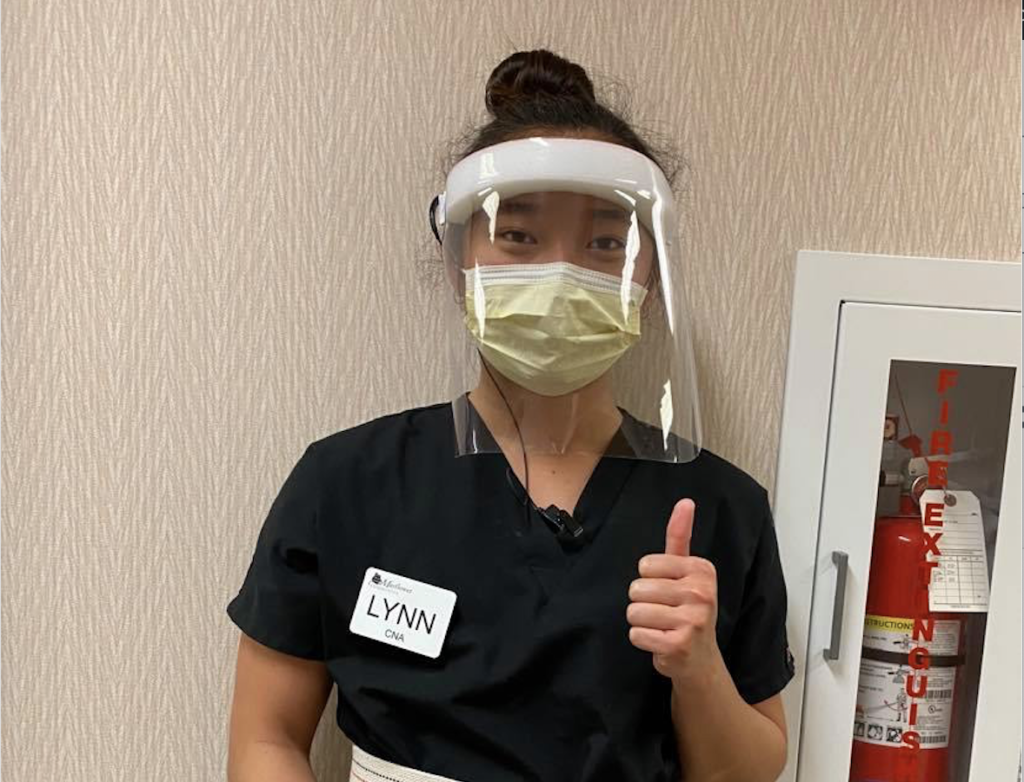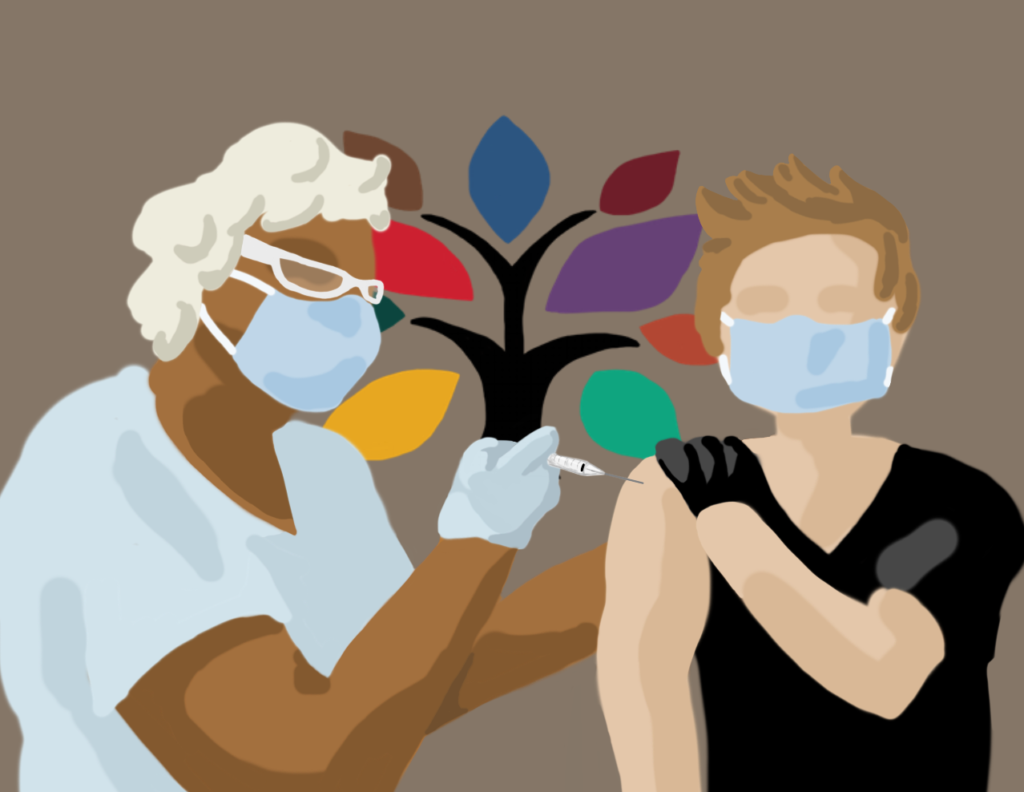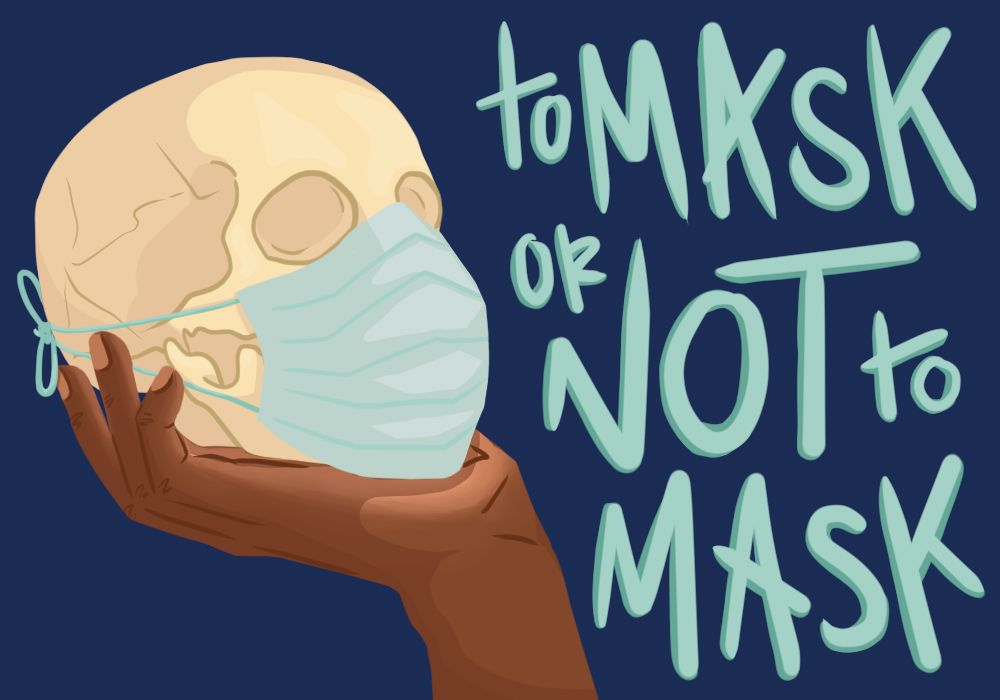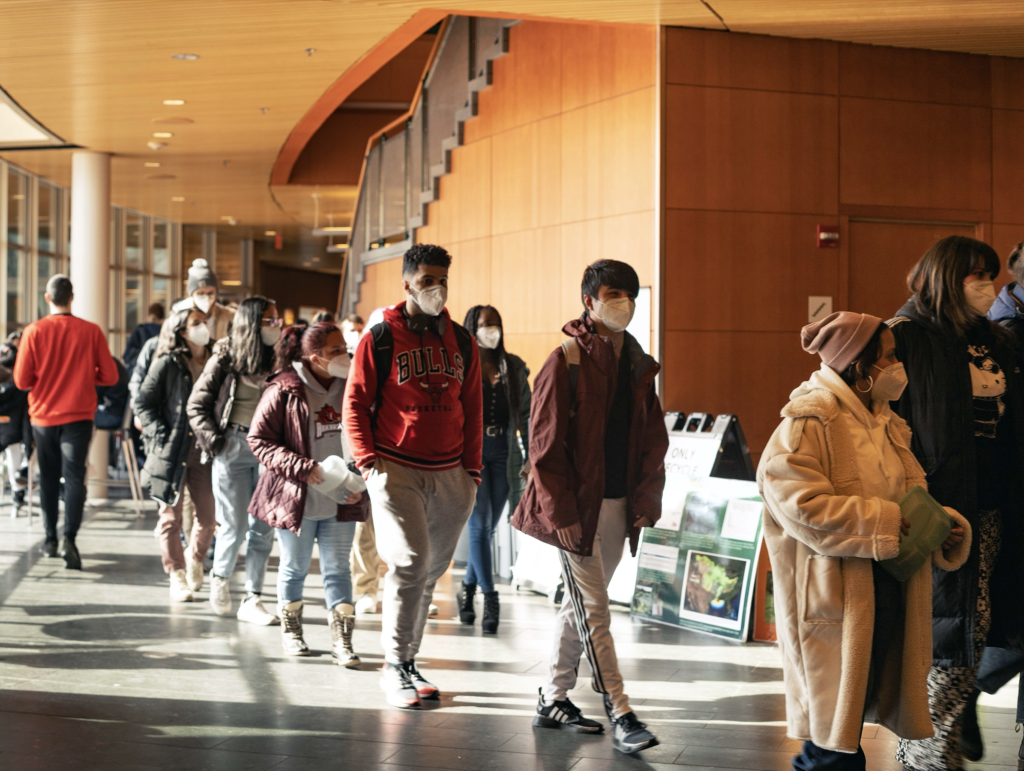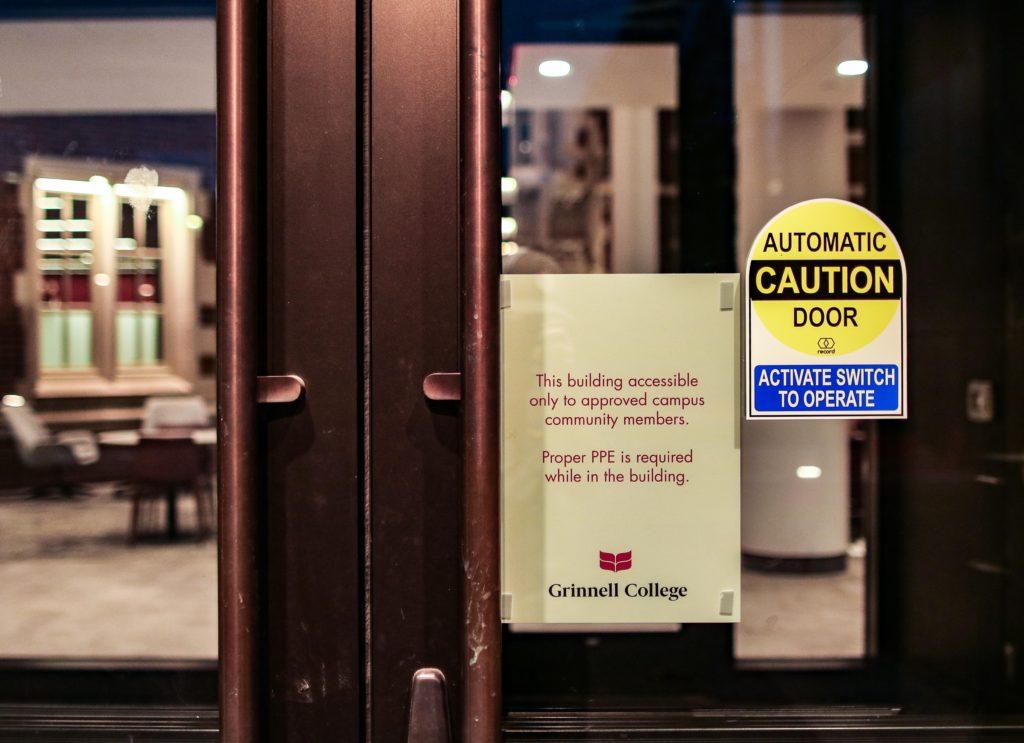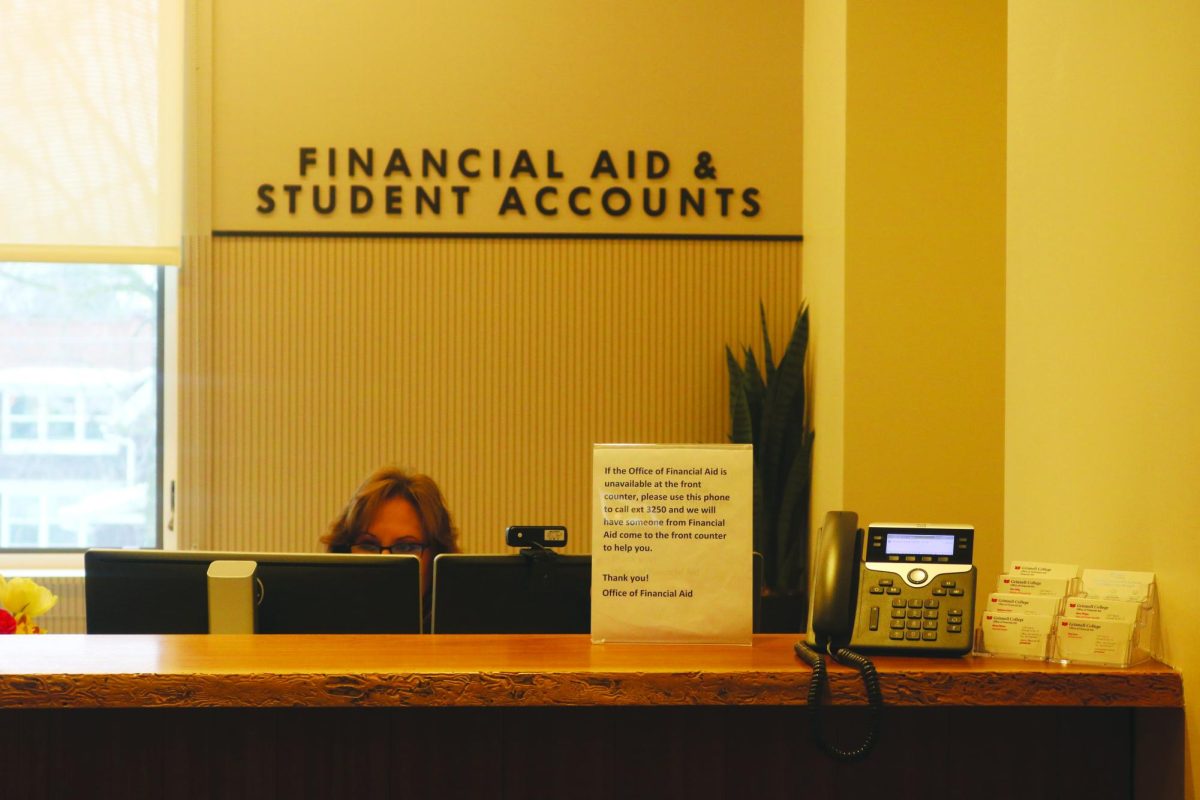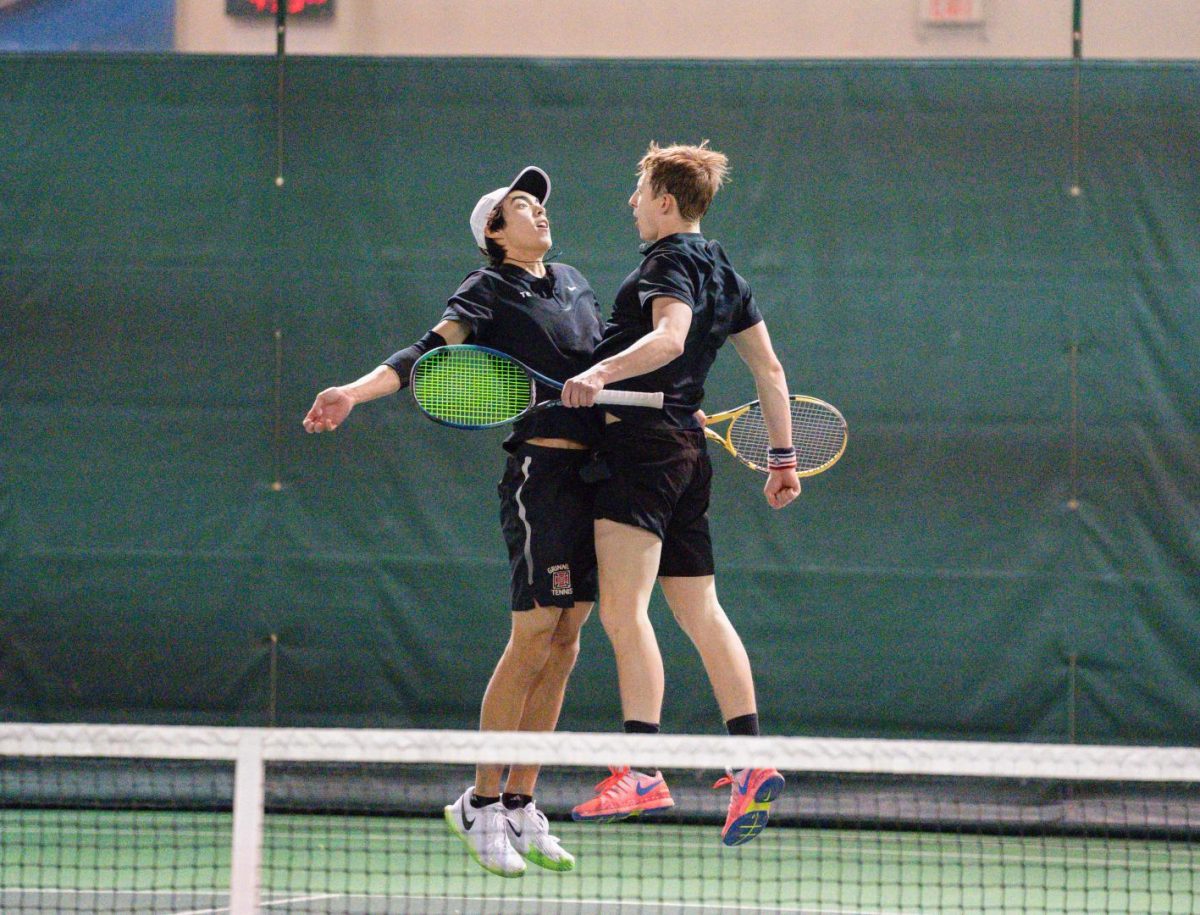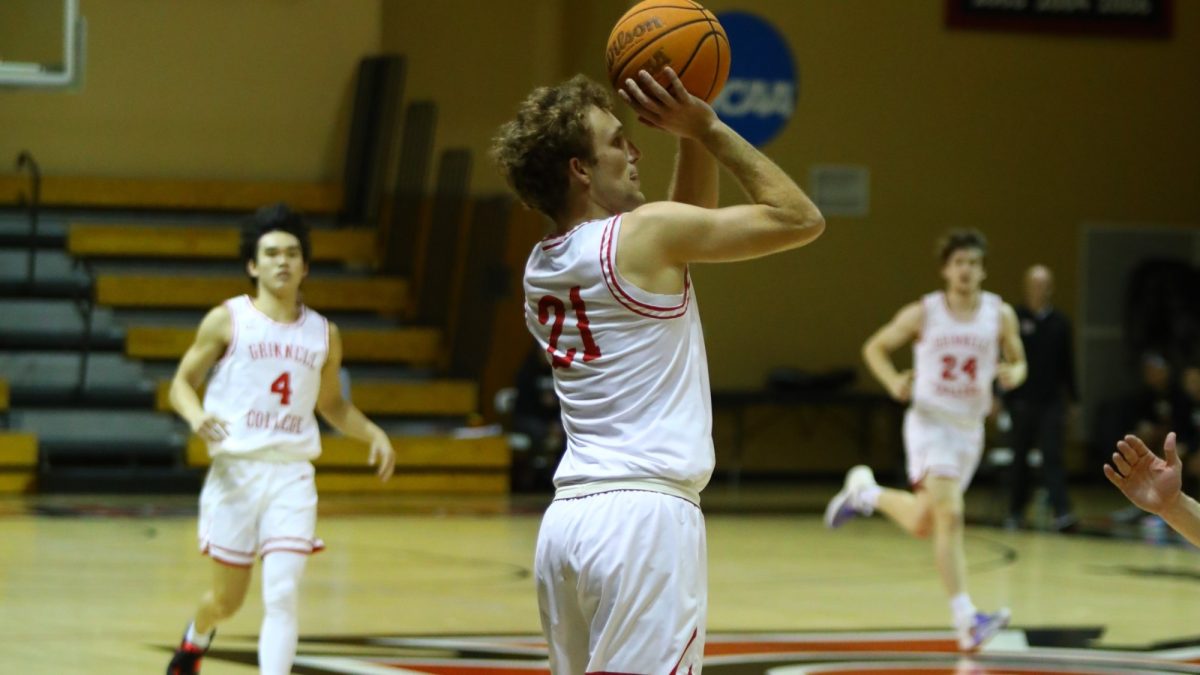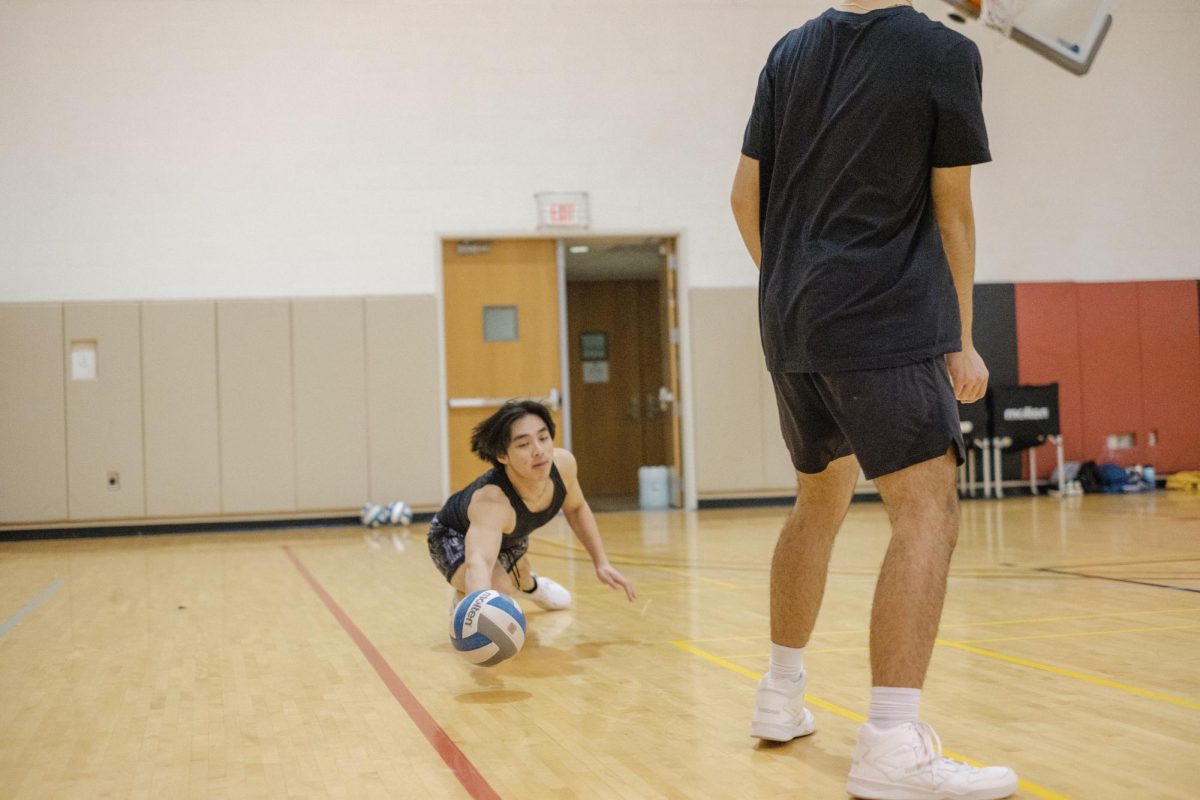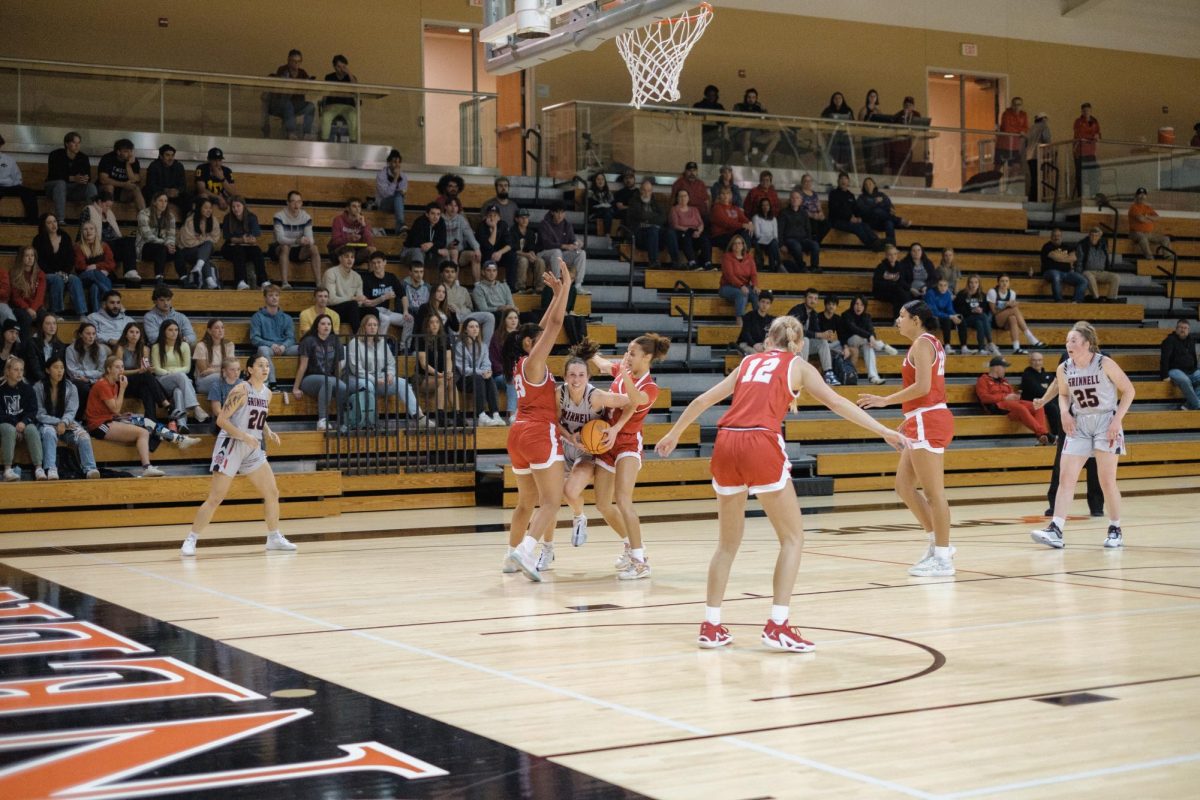Lynn Nguyen ’20 and Abby Nielson ’21 are relatively new to this line of work — the line of work being at the frontline of the COVID-19 pandemic as Certified Nursing Assistants at the Mayflower Community in Grinnell.
The two Grinnell College students completed a CNA training course over the final three weeks of winter break this year. After the announcement that the College was moving to distance learning, they decided to stay in Grinnell to continue working at the Mayflower and get valuable experience to prepare for a career in the medical field.
“I wanted patient care experience, and I think what drew me to CNA training was I’ve had grandparents in long-term care facilities, and I think watching what they did for my relatives [drew me],” said Nielson. “I really liked how for long-term care most of it’s really getting to know the residents.”
In an email to The S&B, Nguyen wrote that she decided to become a CNA because it was a good opportunity to gain direct-patient care experience, to strengthen her interpersonal skills and to broaden her understanding of the healthcare system.
While these initial goals prompted Nielson and Nguyen to enroll in the CNA program, circumstances have rapidly changed since then.
Steve Langerud, the Executive Director of Mayflower, is proud that the nursing home currently has no cases of COVID-19 amongst the 140 staff members and 280 residents. He feels their quick response to the pandemic played a key role in preventing the spread of COVID-19 in the nursing home.
Associate Director Kellie McGriff said that employees entering the Mayflower have a mini-screening every day to test their temperature and see if they’re feeling sick. Staff in direct contact with patients wear a surgical mask and face shield every day. Those not in direct contact wear safety goggles and masks, but N95 masks are available for any positive cases that may show up. Physician visits are done virtually, and families are not able to visit loved ones unless a patient is at the end of their life, in which case a family is screened and given proper PPE before entering the home. The Mayflower has also relocated some residents, with permission from them and their families, to clear out a wing that can be used to isolate residents who get the virus.
“We feel that we’re well equipped,” said McGriff.
Langerud highlighted how uncomfortable PPE is and how health care workers still manage to take great care of patients, despite these stressful conditions. “If you put on [a] mask and goggles and shield and everything, it’s not a pleasant way to work. And to be caring and compassionate and connecting with people in need at a deep level when you’re dressed like that and feel like that is really a challenge.”
Beyond the stress of daily operations, staff-members are aware that nursing homes are at particular risk for COVID-19 outbreaks. An outbreak was declared April 22 at St. Francis Manor, another senior living community in Grinnell.
“I think there’s always an underlying level of stress that just doesn’t disappear, because it’s almost like it’s not ‘if’ [the virus will enter the Mayflower], it’s ‘when,’ and so you’re just anticipating it,” said McGriff. “That can really wear not only the residents down, but the staff down. And diligent as we are, [that] doesn’t mean that it’s not going to happen.”
Nielson and Nguyen each work about 24 hours a week in the nursing home, although they often work overtime due to short staffing.
“I’ve had to come in a few days, or at least once a week, at 4 a.m. instead of 6 a.m. [when my shift normally starts] because people who have the night shift need extra help. Hours have been pretty crazy,” said Nielson.
With final exams just around the corner, Nielson and Nguyen have both been trying to juggle an intensifying work schedule and increasing amounts of schoolwork. Nielson tries to get most of her homework done on the four days she has off work, saying she’s somewhat thankful to have structure.
She said, “On one hand, you’re fortunate to have a job during this time compared to like, so many people who are out of work and can’t pay their bills, but also, it’s scary, and I can’t imagine going to work in a big hospital with a bunch of cases. It’s different for me.”
Nguyen is balancing her online classwork and working remotely at her other job, as a Global Envoy for the Institute for Global Engagement. She said that while this workload is manageable on a day to day basis, the overall effect does weigh on her. “It can also be pretty hard since I feel physically and mentally exhausted all the time,” she wrote.
The administration at Mayflower and Nielson and Nguyen all expressed their genuine interest in the happiness and well-being of the residents. Chats with families are restricted to digital platforms, and socialization amongst residents is at a minimum, with them being isolated to their rooms except for a weekly round of hallway bingo and an occasional game of hallway kickball.
Isolation can be difficult for everyone, and Nguyen wrote that “The Mayflower takes care to communicate with residents and be transparent in various policy and action decisions related to [the] developing COVID-19 situation.” She described frequent “care conferences” and one-on-one check ins with residents to monitor their wellbeing, both physical and mental.
Despite all the challenges that healthcare workers are facing right now, Nguyen and Nielson are grateful for their experiences at the Mayflower. The two students emphasize that their interactions with residents have made their time worthwhile and that although this work is difficult, it is also rewarding.
“I think it’s been really good experience for me, and I’ve learned a lot,” said Nielson. “When you think of hospitals or doctors, nurses, whatever, it’s kind of like this whole saving lives mentality, but [at a nursing home] it’s more like palliative care. We’re not saving lives, we’re just making people comfortable and getting them the things that they need, and that’s just as important.”
“Everyone has to work really hard. The environment amongst workers is generally pretty supportive though; we’re all doing our best to get through this together,” wrote Nguyen. “It’s given me a lot of humbling and invaluable perspectives on the human condition. I have so much respect and admiration for my fellow healthcare workers, and deep gratitude for the residents who have trusted us to care for them.”



















































